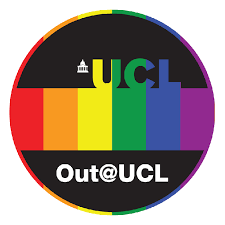We aim to understand and challenge the systemic and structural biases, inequities and injustices that affect and disadvantage members of our student and staff body.
This means taking effective actions to be conscious of, correct and prevent negative experiences lived by students and staff in our departments and institutes. Through taking effective action we aim to increase staff and student trust in our systems and procedures, to foster their sense of belonging and to make sure that lines of accountability are clear to all.

Faculty Race Goals & Pledges
For the academic year of 2020-2021, our pledges address culture shift, student experience, staff recruitment and promotion, and accountability. We pledge to:
Develop a series of MAPS Lunch hour conversations on Tackling racial inequity in higher education and in STEM. The purpose of the series is to ensure continuity in the conversation and dialog around building and strengthening an anti-racist culture across the Faculty.
Support MAPS departments in the implementation of the Inclusive Curriculum Healthcheck as well as in ensuring that departments carry out a continuous assessment of the impact of the COVID-19 pandemic in the BAME student experiences and that mitigating impact plans are put in place accordingly.
Continue encouraging our staff and student community to take collective responsibility in preventing and challenging unacceptable behaviours, including challenging racial harassment, by launching a video series that encourages members of our community to understand, reflect on, prevent and report unacceptable behaviours.
Continue using the Fair recruitment Specialist scheme, whenever possible, for recruitments taking place this year.
Proactively encourage and support widespread participation of staff in the Accelerate to Leadership programme.
Hold a faculty-wide forum as a safe space for students and staff to hold both Faculty and Departments accountable on their 2020-2021 pledges and to discuss learnings and future actions.
Department Race Goal & Pledges:
- Science and Technology Studies
- Establish a student-led, safe space for students from a BAME background to come together, discuss race-related issues and recommend actions as required to the STS Equalities and Equities Subcommittee. This student-led, safe space will be set up in consultation with students to ensure that the space can fit students’ needs as required.
- Make anti-racism training available to staff within STS. The STS department will be one of the pilot departments to attend a UCL-wide diversity training, available to staff in terms of teaching and inclusive practice.
- Continue to review student recruitment practices to encourage inclusivity and increase diversity across our student body.
- Review the STS Curriculum to include content about structural inequalities and social justice, review and expand reading lists, whenever possible, and develop the language and concepts to discuss and address structural inequalities, such racism, sexism, class discrimination, ableism, homophobia and their intersections. This will be set as ongoing work in the Department over the next few years.
- Earth Sciences
- Proactively target Black, Asian and Minority Ethnic scientists to apply to our forthcoming recruitments by making widespread advertisement in targeted networks such as The International Association for Geoscience Diversity (IAGD) and the Geoscientists of Color network. During the recruitment process we will include a Fair Recruitment specialist to assist the entire process from advertisement through to shortlisting and selection.
- Expand our EDI committee to ensure the creation of departmental networks that can drive effective actions for inclusion of underrepresented groups. The focus will be to expand the committee to include members taking the roles of BAME officer, LGBTQ+ officer and Disability officer, and work with them to create Departmental Networks for these underrepresented groups.
- Have a “safe space” conversation with all permanent staff. The members of our predominant white-male Department have expressed their willingness to embrace change. To support such, we would arrange a “safe space” conversation with all staff, under the guidance of an expert facilitator, to encourage frank discussion around language, behaviour and culture, and thus determine a clear way forward.
- Mathematics
- Improving the recruitment process, primarily for academic and teaching posts where we do not have much ethnic diversity on the current staff. Here we have two actions:
- To seek a wide race representation in the pool of applicants by circulating news of all new departmental posts to ethnic minority networks.
- To ensure fairness in the recruitment process. We will trial the use of a Fair Recruitment Specialist in one academic appointment round this year. There has been local pushback against the use of people whose expertise is far from the discipline, which is why we are initially planning a controlled trial of the scheme rather than wholehearted adoption.
- Ensuring that our black undergraduate and graduate students feel welcome, and part of a wider community of black mathematicians. This means:
- Ensuring that the new Black Doctoral Students’ Network is advertised to all new and existing departmental research students
- Advertising specific targeted events – such as Chalkdust magazine’s “Black Mathematicians Month” and the upcoming joint IMA/LMS conference “Black Heroes of Mathematics” to our undergraduate students
- Ensuring we nurture our BAME PS colleagues and enhance their career development by nominating them for UCL’s Leadership Programmes (e.g. Accelerate to Leadership) whenever it is appropriate for their career stage. We commit to making sure it is considered in every round of the programmes.
- Improving the recruitment process, primarily for academic and teaching posts where we do not have much ethnic diversity on the current staff. Here we have two actions:
- Physics and Astronomy
- Raise awareness of, and challenge, the predominantly white and male role mole representation in the P&A curriculum. Every module taught by P&A staff to develop portraits of eminent scientists from underrepresented groups in their fields as role models. Portrait information will be collected by the Department to ensure diversity and comprehensiveness.
- Implement a PhD buddy system across the Department. Assign new PhDs to an existing senior student. The buddies will be provided with access to EDI resources and encouraged to undergo training, e.g. with regards to unconscious bias. Evaluate impact of scheme with annual or bi-annual surveys.
- Keep track of speaker backgrounds more comprehensively across the Department.
- Increase the share of speakers from BAME backgrounds at seminars and outreach talks, also exploring the potential to reach out to global universities outside the traditional physics institutions via online sessions.
- Encourage at least one member of staff in the Department to be trained as a Fair Recruitment Specialist and trial the scheme in at least one recruitment within the Department, with subsequent evaluation.
- Chemistry
- Develop a new mentoring scheme – the mentoring scheme will be for Early Career Researchers and we aim to open this up to PhD students to encourage them to stay on in academia and help bridge any BAME Attainment Gap. Training will be provided to both mentors and mentees. Nicola Philips will arrange the training and the mentors will be allocated to mentees via the EDI committee initially. Evidence for where mentoring has been successful is in the advancement of women academics in the department who have received active mentoring from senior colleagues (both male and female). Hence, our aim is to expand this success in all areas of diversity to our early career researchers and PhD students.
- Continue to review student recruitment practices to encourage inclusivity and increase diversity across our student body. This will include ensuring that outreach and engagement activities are reaching underrepresented groups. With increased use of remote activities our aim would be to expand outreach activities to underrepresented groups in urban areas such as Bradford and Manchester. We would also look to potentially develop some summer internships after the successful teaching and remote internships this summer.
- Recruitment process for staff positions. Previously, we proactively targeted female researchers in an effort to expand the numbers of women applying for academic positions, which was successful (7 out of 10 recent lecturer appointments in chemistry were female). We will attempt to proactively target BAME researchers in future positions and we will look to trial the use of a Fair Recruitment Specialist in one appointment round.
- Expand the EDI committee with a targeted role. The Culture working group of the committee has a LGBTQ+ Champion and a Wellbeing Champion we will aim to expand this to also have a BAME Champion. The LGBTQ+ Champion enabled an active network to be developed in the department so we would work with the BAME Champion to develop a similar network for this underrepresented group.
- Institute of Materials Discovery
- Create a forum to raise awareness among staff and students of UCL EDI policy so that they can understand cultural differences and understand the importance of race and gender equality which may be different in their culture.
- Organise diversity and inclusive training and anti-racism training for IMD staff.
- Highlight EDI policy in IMD Recruitment Activities. Include EDI statement in job advertisements and include EDI awareness as one of the desirable personal specifications.
- Make all staff well aware of EDI policy to promote the inclusiveness in all Curricula
- Space and Climate Physics
- Deliver racial sensitivity training to all staff and students.
- Identify staff to be further trained in fair recruitment practices and include fair recruitment specialists on selection and interview panels; provide fair recruitment guidelines to all staff with line management responsibility.
- Develop and deliver a programme of targeted schools’ outreach activities that are inclusive.
- Provide training on inclusive education to all teaching staff and bespoke workshops for PhD supervisors on cultural and racial awareness.
- Natural Sciences
- Create spaces and opportunities for Natural Sciences community reflections about race, such as on the history and legacy of eugenics and genetics at UCL. This activity will build on and enhance events already run in 2019-20 and 2020-21. Encourage the adoption of diversity statements in module syllabi and continue to promote “Report and Support”.
- Support and facilitate activity to “Decolonise the curriculum”, such as by working with UCL Justice Collective and establishing/highlighting local pathways for racerelated community input. Agenda item on SSCC to recommend actions to Natural Sciences Management Board through its EDI representatives.
- As an outcome of student-staff discussions, establish at least one active intervention that can be locally supported, such as staff/student champion roles, mentoring, or funding for development activities.
- Statistics
- Widening the pool of applicants through specific targeting. For example, by looking into the database of professionals/graduates affiliated with institutions like RSS and the ASA, who identify themselves with some form of ethnic minority
- Promote EDI awareness amongst the students. For example, introduction to EDI values in the induction.
- Developing the mentoring scheme for A- level students with high potential in mathematics and statistics from BAME background.
- EDI awareness to become part of the person specification (essential or desirable) for the candidates who apply to work in the department.
- LCN
- Create an undergraduate summer research bursary for the LCN, targeted at underrepresented BAME groups (we would aim to amplify this by establishing similar bursaries at King’s and Imperial);
- Assign mentors to all staff when they are promoted and change grades (this is an example of an action that we hope would benefit everyone, but especially those from minority groups who might not find it so easy to form professional networks);
- Trial the use of a Fair Recruitment Specialist for at least one LCN appointment during the coming year.
 Close
Close


